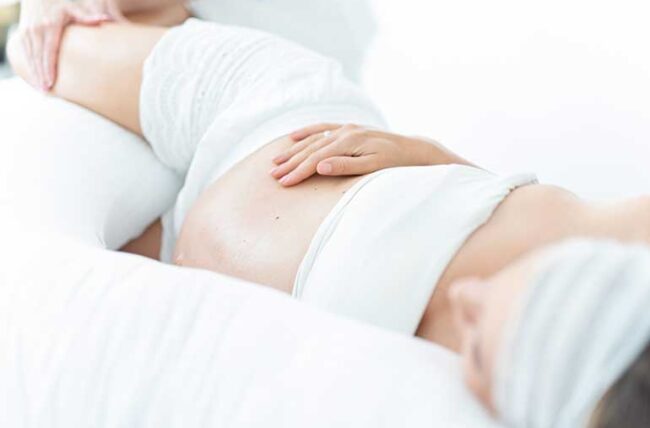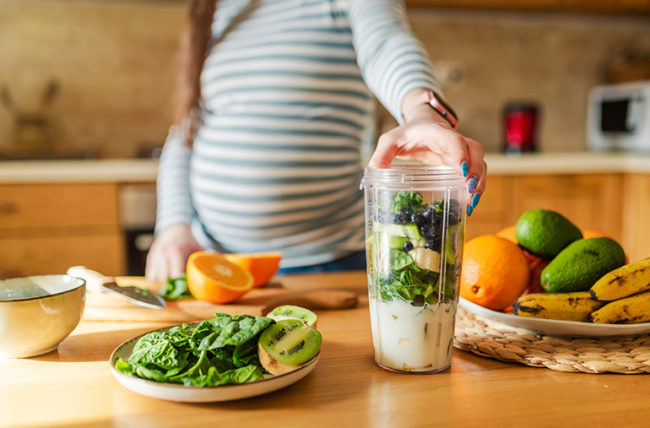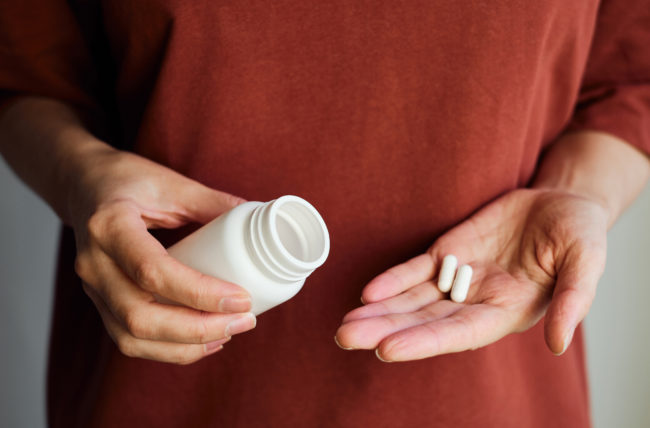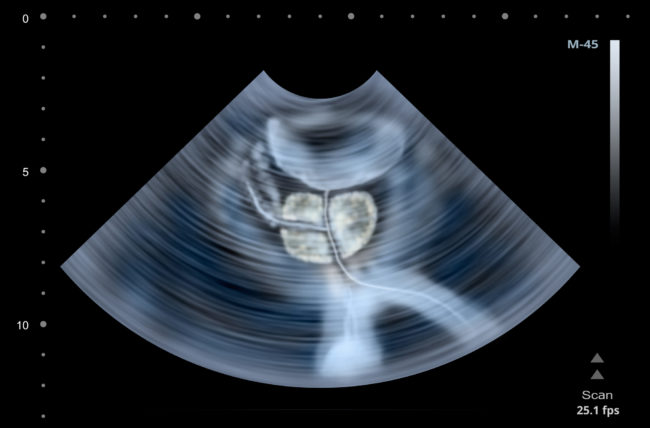You’re experiencing a growing belly, a running nose and itchy eyes. You’re probably wondering: Is it safe to take allergy medication while pregnant?
You may already be familiar with the remedies that ease your symptoms if you have seasonal allergy symptoms. You may have a well-stocked medicine cupboard to combat the allergens that make your nose drip.
You may have allergies that are a major problem for you. Salena Zanni, MD , Ob/Gyn, assures you that your symptoms will not interfere with a healthy fetal growth.
How you manage your allergies can have an impact on your pregnancy. Choose treatments that are safe for pregnancy and appropriate for your symptoms.
You may know that some medications should not be taken during pregnancy. Allergy meds are no exception. Some you can keep taking. Some should be avoided. Some allergy medications may be okay depending on the situation.
There’s a lot of information to sort through. Dr. Zanotti can help you sort through it.
Can you take allergy medication while pregnant?
You can take some allergy medications while pregnant. But you should choose carefully. Some non-medication alternatives may also help to reduce your allergy symptoms.
You may have different options depending on your health or any other risks associated with pregnancy. It’s best to discuss with your doctor the best way for you to manage your allergies during pregnancy.
Dr. Zanotti states that “no medication is safe for everyone”. This is true regardless of whether or not you are pregnant. Even choices generally regarded as safe during pregnancy can carry a small risk. Some medications will work better than others if your symptoms are severe. There are non-medication methods to help with milder symptoms.
Dr. Zanotti explains the options.
Chart: Are your allergy meds pregnancy-safe?
| Allergy medication | Safety |
| Antihistamine tablets | It is generally considered to be safe. |
| Antihistamine nasal spray | There is not enough evidence to be considered safe. |
| Nasal steroid spray | It is generally considered to be safe. |
| Allergy shots | Use is generally considered safe before pregnancy. Do not start a new product during pregnancy. |
| Decongestants are available in the form of pills and sprays. | After the second trimester, it is generally considered safe. If you have high blood-pressure, avoid. |
| Herbal allergy remedies | There is not enough evidence to be considered safe. |
Antihistamines
Antihistamines block histamine’s effects, which is a cause of allergy symptoms. These are some of the most commonly used over-the counter medications for seasonal allergy symptoms.
These antihistamines are safe for pregnant women, according to the American College of Obstetricians and Gynecologists
- Loratadine
- Cetirizine
- Chlorpheniramine.
- Dexchlorpheniramine.
- Hydroxyzine.
Dr. Zanotti explains that “antihistamine tablets can be used as the first line of treatment for allergy symptoms during pregnancy”.
Read the labels carefully. You may find that some antihistamines in the store also contain decongestants. Pregnant women should avoid these. More on this in a moment. The letter “D”, at the end, of your brand name like Claritin(r) or Zyrtec(r), is a sign that the antihistamine you are using contains a decongestant. You may also see words such as “cold relief” and “congestion relief”.
There are also antihistamine nasal salves. Dr. Zanotti, however, says that not enough research is done to determine if these sprays are safe for pregnant women. It’s best to avoid nasal spray antihistamines until more research has been done.
Nasals spray
Some people also find relief with steroid nasal sprays. This includes Nasonex (r), Nasacort (r) or Flonase (r).
Dr. Zanotti states that these sprays can be used safely throughout pregnancy at the recommended dosage. You can combine an oral antihistamine with a nasal spray if your allergies are in full swing.
Some nasal sprays are addictive. However, this is only true for decongestants. These should not be used while pregnant. Steroid sprays don’t form a habit. They should be used frequently to get the best results.
Use nasal sprays correctly . Don’t inhale or tilt your head back.
You could also try saline nose sprays. These products are a mixture of salt and water. These products are safe to use during pregnancy. They can also be a non-medicinal way to treat nasal congestion.
Allergy shots
Allergy injections help to minimize allergic reactions. The shots work by repeatedly exposing you to small amounts of allergens. The treatment is usually administered weekly over several years to people who are suffering from allergies.
Dr. Zanotti says that if you received allergy shots prior to pregnancy and found they helped your symptoms, then it is safe to continue. It’s not recommended to begin allergen immunotherapy during pregnancy.
She continues, “We do not recommend allergy shots for pregnant women because you never know how you will react.”
Some people experience negative reaction to allergy shots. This includes a drop in their blood pressure, hives, and difficulty breathing. You can’t tell if your reaction could affect the healthy development of a fetus if you haven’t received allergy shots in the past.
Decongestants
You may have relied on decongestants to relieve nasal congestion before you became pregnant. Decongestants such as pseudoephedrine(Sudafed®) are not recommended during the first trimester.
Researchers have found that the use of decongestants can increase the risk of birth defect. Researchers believe that nasal decongestants sprays could also carry the same risks.
Dr. Zanotti states that the risk of decongestants drops after the first three months, so some women can use them later in pregnancy.
No matter how far into your pregnancy you are, you should not use decongestants if you suffer from high blood pressure.
Decongestants reduce swelling in the nose. She explains that this opens your airways and decreases swelling, which can lead to stuffy noses. This narrowing can also affect other blood vessels and increase your blood pressure.
Herbal remedies
Many people swear by certain herbs and natural remedies to relieve allergies. In the past, you may have tried echinacea or mullein. Maybe you use tea tree, lavender or eucalyptus oil to clear your sinuses.
The effects of aromatherapy oils and herbal supplements during pregnancy are not well-studied. Dr. Zanotti advises that it is better to avoid these options.
Allergy relief can be achieved in other ways
You don’t have to take medication for your allergies. Some people don’t feel that medications are right for them, particularly if they have mild allergy symptoms. Some home remedies may be able to help you and keep your baby safe.
- Showering can help open your airways, and wash away any allergens on your skin.
- Humidifiers will moisten your home’s air and soothe irritated nose passages.
- Neti Pots can help clear your sinuses, and saline sprays can remove mucus.
- Close your windows when pollen counts are high. Open your windows to air out the house if you are experiencing indoor pollutants like pet hair.
Allergies are a pain, especially when you have to deal with other pregnancy symptoms like backache and morning nausea. There are allergy-relieving options that are safe for pregnancy. Remember that the problem is temporary.
Dr. Zanotti assures that “your symptoms may be uncomfortable, but keep in mind they will not last forever.” There is light at the other end of the tunnel.






















